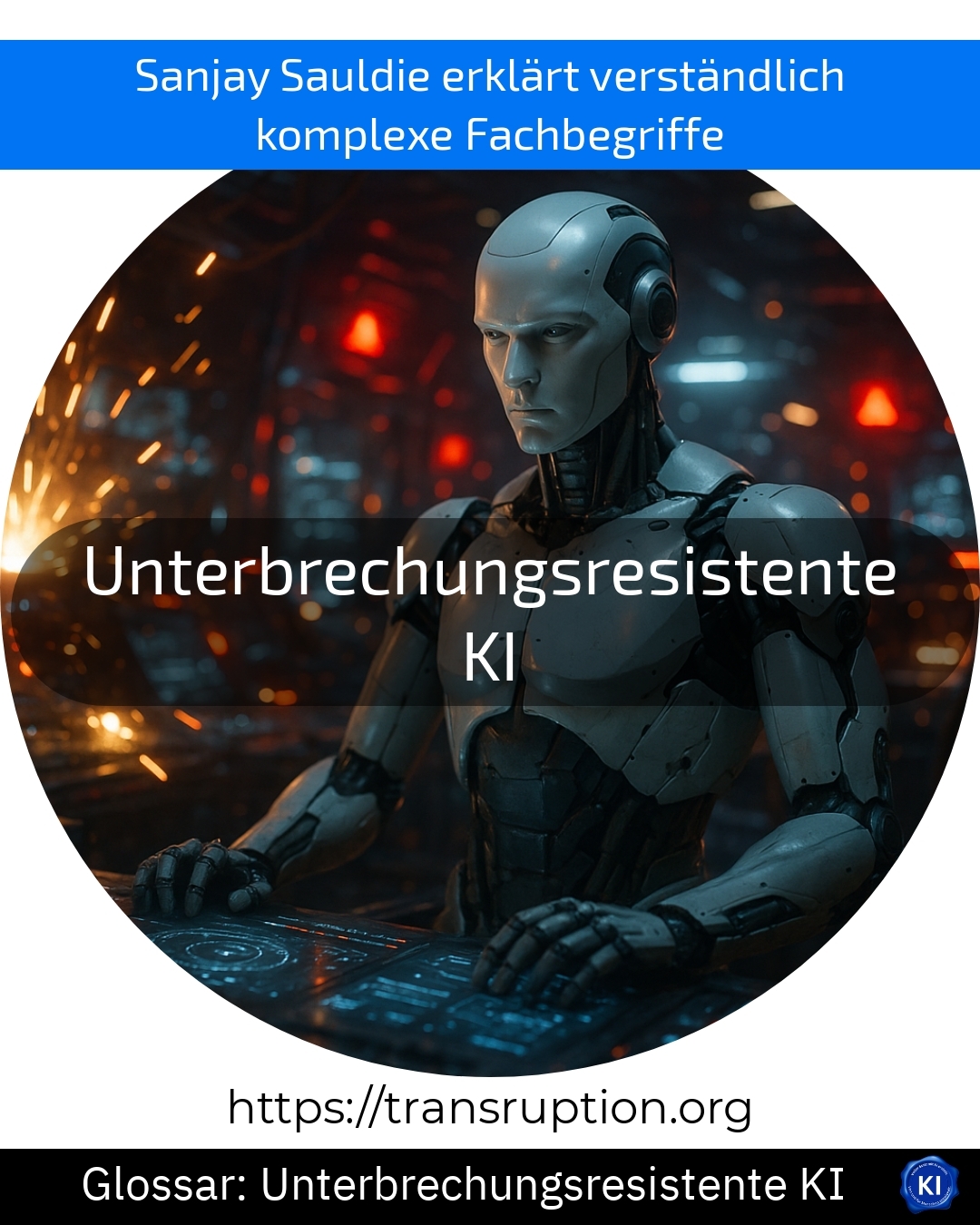The term interrupt-resistant AI originates from the fields of artificial intelligence, automation and Industry 4.0. It describes a special characteristic of modern AI systems: they are developed in such a way that they do not fail completely or lose their "learning progress" in the event of interruptions - for example due to power failures, network problems or human intervention.
Imagine an automated production line that is optimally controlled with the help of artificial intelligence. If there is a sudden power failure, an interruption-resistant AI can continue working in the right place as soon as the power supply is restored. It must therefore store important information about its status and running processes in such a way that a restart is possible without data loss or errors. In contrast to conventional systems, complex workflows do not have to be reprogrammed or started from scratch.
This characteristic makes interruption-resistant AI particularly valuable for companies that rely on stable processes. In industry, logistics or critical infrastructures, for example, it ensures greater product safety and efficiency, even if unexpected disruptions occur.















